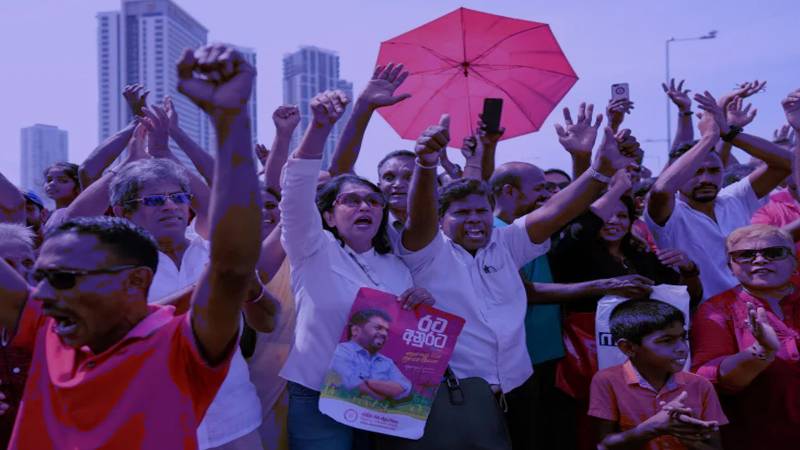
Sri Lanka’s recent snap parliamentary elections have resulted in a landmark victory for the left-leaning National People’s Power (NPP) coalition, reshaping the nation’s political landscape and promising sweeping reforms. The coalition, led by President Anura Kumara Dissanayake, secured an unprecedented two-thirds majority in Parliament, marking the largest mandate in the country’s history. This transformative victory signals a clear demand for change among Sri Lanka’s electorate, weary of decades of corruption, economic mismanagement, and political instability.
Sulochana Ramiah Mohan, Deputy Editor of Ceylon Today, shared insights into the factors driving this historic shift during an episode of Unraveled with Marvi Sirmed. Mohan attributed the NPP’s success to the public’s frustration with entrenched corruption and nepotism, particularly under the Rajapaksa family, whose dominance and scandals led to widespread disillusionment. The coalition capitalized on the 2022 mass protests, dubbed “Aragalaya,” which were sparked by economic collapse and systemic failures in governance.
One of the election’s most striking outcomes was the NPP’s inroads into Tamil-majority regions, traditionally dominated by nationalist parties. Mohan emphasized that Tamil voters, disillusioned with their leadership and eager for fundamental economic and social reforms, placed their trust in Dissanayake’s promises of reconciliation and inclusivity. This marks a significant step toward bridging the deep ethnic divisions that have long plagued the nation.
Despite the celebratory tone, Mohan cautioned that the new government faces daunting challenges. The NPP has vowed to tackle corruption, reduce the cost of living, and restructure foreign debt, but Mohan described the current period as a “honeymoon phase,” with many promises yet to be realized. While the government has begun prosecuting corrupt officials and streamlining public services, critics remain skeptical about the pace and feasibility of these efforts.
Notably, the election also saw record-breaking women’s representation in Parliament, with 21 female MPs elected—a milestone for Sri Lanka’s political culture. Mohan highlighted the importance of this development, crediting the NPP’s strategic outreach to women and youth, which bolstered its progressive image.
On the foreign policy front, Mohan noted that Sri Lanka must navigate a delicate balancing act between regional powers such as India and China while addressing its economic dependencies. She underscored the importance of maintaining neutrality and fostering cooperation to avoid becoming a geopolitical battleground.
The implications of Sri Lanka’s leftist wave extend beyond its borders, sparking discussions on whether similar movements could emerge in South Asia. However, Mohan remained cautious, noting that while the NPP has embraced a progressive, inclusive agenda, it has steered clear of extreme leftist ideologies that might alienate global allies or domestic stakeholders.
As Sri Lanka embarks on this new chapter, the NPP’s ability to deliver on its ambitious reform agenda will determine whether this historic mandate translates into lasting change. For now, the nation watches with hope and cautious optimism.
The episode of Unraveled with Marvi Sirmed featuring Sulochana Ramiah Mohan is available on New Wave Global’s video platform here.
